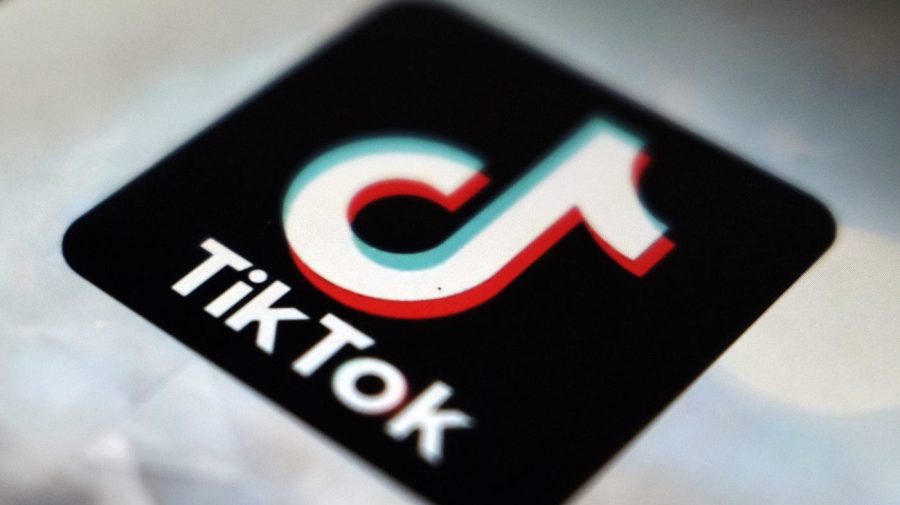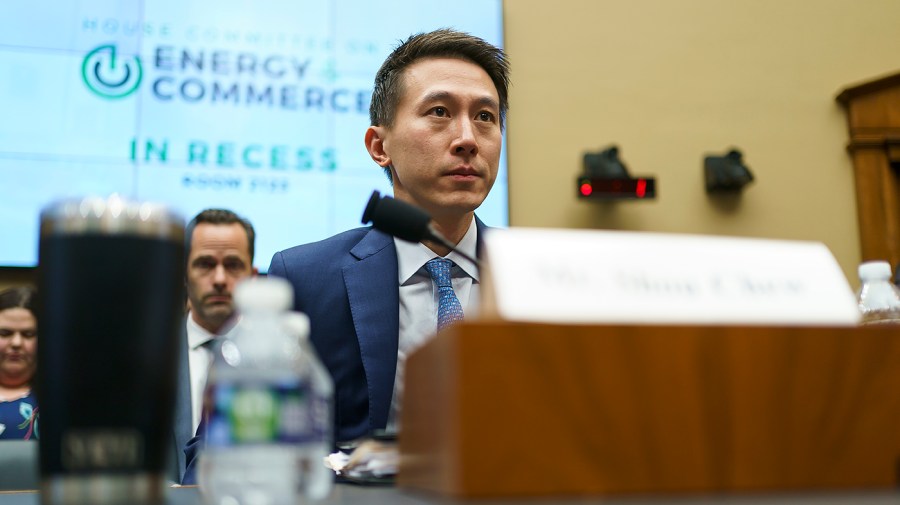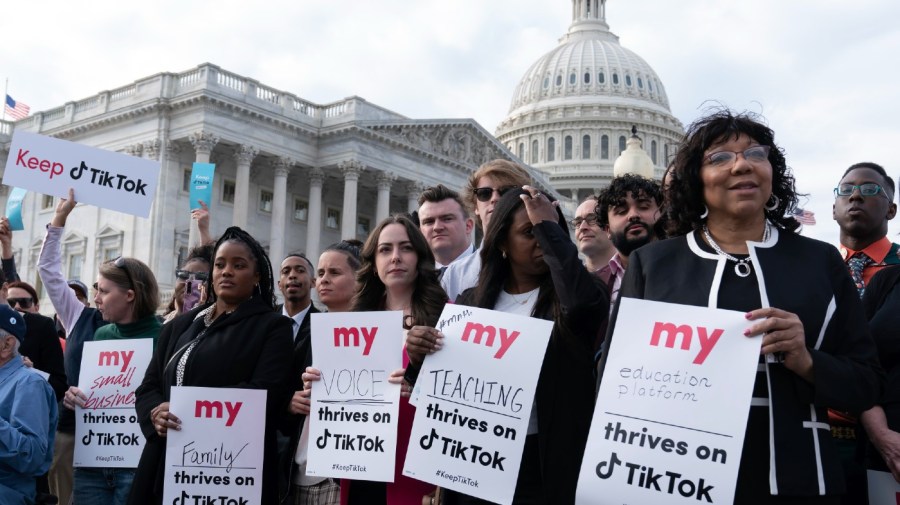How could a TikTok ban be enforced?
Bipartisan support to ban TikTok in the U.S is mounting, but carrying out the action will likely be trickier than gaining the political power to enact it.
Any action the U.S. takes to try to block TikTok, the video sharing app owned by Chinese-based parent company ByteDance, will still have loopholes for users to access through workarounds and is almost certain to be challenged by free speech groups.
“It’s an enforcement nightmare, because any point of intervention that the government claims would have broader sweeping implications for other capacities for government intervention, which has free speech and free trade implications,” said Aram Sinnreich, a communications professor at American University.
The internet infrastructure “by design is distributed and decentralized,” meaning there is no “single choke point” and makes this type of ban difficult to enforce, Sinnreich said.
A TikTok ban would have loopholes

The U.S. could require internet service providers to block American IP addresses associated with TikTok or push app stores to block downloading TikTok.
For new users, it would be easier to implement if downloads are blocked from dominant app stores. For the millions of TikTok users who already have the app downloaded, it’s more complicated.
“It’s not clear how they keep people from using an app that they already have on their phone,” said Darrell West, a senior fellow at the Brookings Institution.
Even if the government carries out those actions, users can still find workarounds to access TikTok as they do in other countries such as China that limit access to certain social media platforms.
“You can never really ban anything completely. Even China, which has a very sophisticated network for enforcing bans, people use virtual private networks to get around them. So no ban is ever going to be complete,” West said.
Sinnreich said the situation, though, would “exacerbate the divide between the haves and the have nots.”
“What would end up happening, just as it has more authoritarian regimes, is that the people with the education and the means would have access to the app, and the people without wouldn’t,” he said.
TikTok faces building bipartisan scrutiny

The political momentum to ban TikTok has been building for months, and a threat from the Biden administration for ByteDance to divest TikTok coupled with a bipartisan grilling of TikTok CEO Shou Zi Chew in the House last week, is seemingly raising the odds of Congress pursuing action that could ban TikTok.
The pressure is building as the app is under review by the Committee on Foreign Investment in the U.S. (CFIUS), ordered by President Biden in June 2021.
Many lawmakers say TikTok poses national security threats due to its Chinese-based parent company owner. Critics argue that TikTok would be beholden to share data on U.S. users with the Chinese government, and that the Chinese government could use that data in a way that poses national security threats or spread propaganda to U.S. users.
TikTok has pushed back strongly against the allegations. In a statement after the hearing, TikTok spokesperson Brooke Oberwetter said “Shou came prepared to answer questions from Congress, but, unfortunately, the day was dominated by political grandstanding that failed to acknowledge the real solutions already underway through Project Texas.”
Project Texas is TikTok’s plan to store U.S. user data through Austin-based company Oracle.
Oberwetter said the House panel also did not address the “First Amendment implications of banning a platform loved by 150 million Americans.”
Banning TikTok raises free speech concerns

Free speech advocacy groups are already warning Congress against a ban. More than a dozen joined forces last week in a letter to Congress urging them against taking such action, and saying it would have “serious ramifications for free speech expression.”
The U.S. has taken action before to shut down certain apps and websites that are credibly accused of being used for human trafficking or rampant intellectual property infringement, Sinnreich said. But a ban on TikTok would “represent a new level of government intervention into Americans’ online speech, if it were enforced in the same way,” he said.
Sinnreich said a ban on TikTok would be an “opportunistic, performative policy that preys on the worst of Americans’ xenophobia and nativism” and would “scapegoat one country and one company for the very grave sins that have are overwhelmingly perpetrated by American companies.”
Rep. Alexandria Ocasio-Cortez (D-N.Y.), posted her first TikTok video on Saturday arguing against a ban on the app for those very reasons.
The outspoken Democrat said a TikTok ban “doesn’t really address the core of the issue” over data harvesting because of other social media companies that collect “droves of deeply personal data.”
“So to me, the solution here is not to ban an individual company — but to actually protect Americans from this kind of egregious data harvesting that companies can do without your significant ability to say no,” she said.
West said it also raises questions about where the U.S. draws the line on other Chinese-based companies, and companies with ties to production in China.
“If one is serious about the national security threats, you can’t just focus on one company and claim success. They really need to have a much more serious conversation about all the Chinese companies and how they want to handle them,” West said.
Copyright 2023 Nexstar Media Inc. All rights reserved. This material may not be published, broadcast, rewritten, or redistributed. Regular the hill posts







